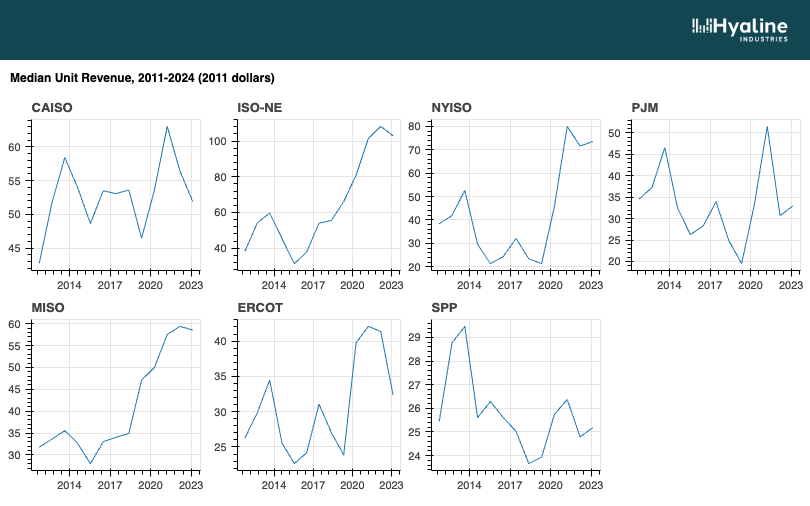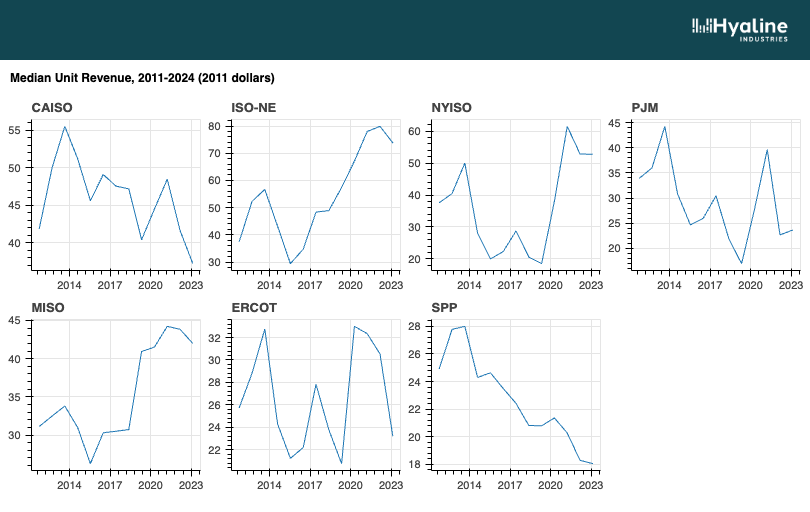Power Markets don't automatically reduce prices
There is a phrase that you encounter sometimes when you go through energy systems: "Markets reduce prices". Well, the more careful ones will say "competition reduces prices", but it amounts to the same thing. The thesis is always "Markets encourage competition, and competition reduces prices, therefore markets reduce prices". But the question is a pretty simple one: do they, actually? Once more, let's pull open some data and have a look.
It's not exactly hard to get access to full market prices, but it can be difficult to interpret those prices correctly, and there are lots of caveats necessary1. Fortunately, we can make use of Hyaline to get us a first-order approximation that can verify our intuition. For all 7 power markets in the United States, Hyaline maintains a significant sample of power plants which report their wholesale revenue every year. Wholesale revenue is just price times net-generation, so we can use the wholesale revenue and generation data in Hyaline to estimate average prices for each market:

It doesn't take a whole lot of work to notice that the sentence "markets reduce prices" is perhaps more aspirational than realistic. Some markets (SPP in particular) do see an overall drop in price, but others (ISO-NE and MISO in particular) show a clear upward price trend.
Of course, you might say "well, this is in nominal dollars, if we adjust for inflation, then we'll see the effect". So alright, let's do that:

After you adjust for inflation, a few of the markets start to look better--CAISO and PJM, for example, show a more clear downward trend. But MISO, ISO-NE, and NYISO continue to defy expectations. If you are going to argue that markets truly reduce prices, then you're going to need to spend some time figuring out why those markets don't follow the rule.
If you like what we are doing here at Hyaline, or if you have a question about power or energy that you're curious about, please let us know at questions@hyaline.tech.
Notes:
- If you really want to see that kind of in-depth, detailed calculation, you can check out https://www.hbs.edu/ris/Publication Files/21-095_ba6594bd-2648-4069-94bb-52dfd9495fb1.pdf. The main explanation given in that paper is "market power": power markets aren't super competitive, as it turns out. But that's something to consider in another article.
